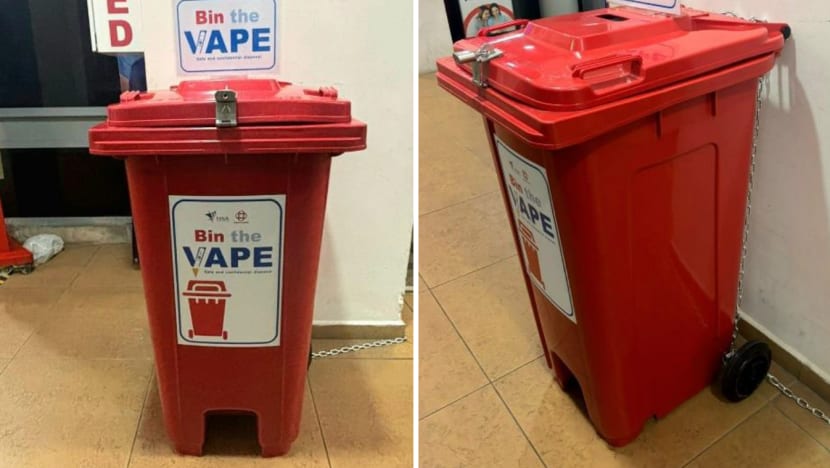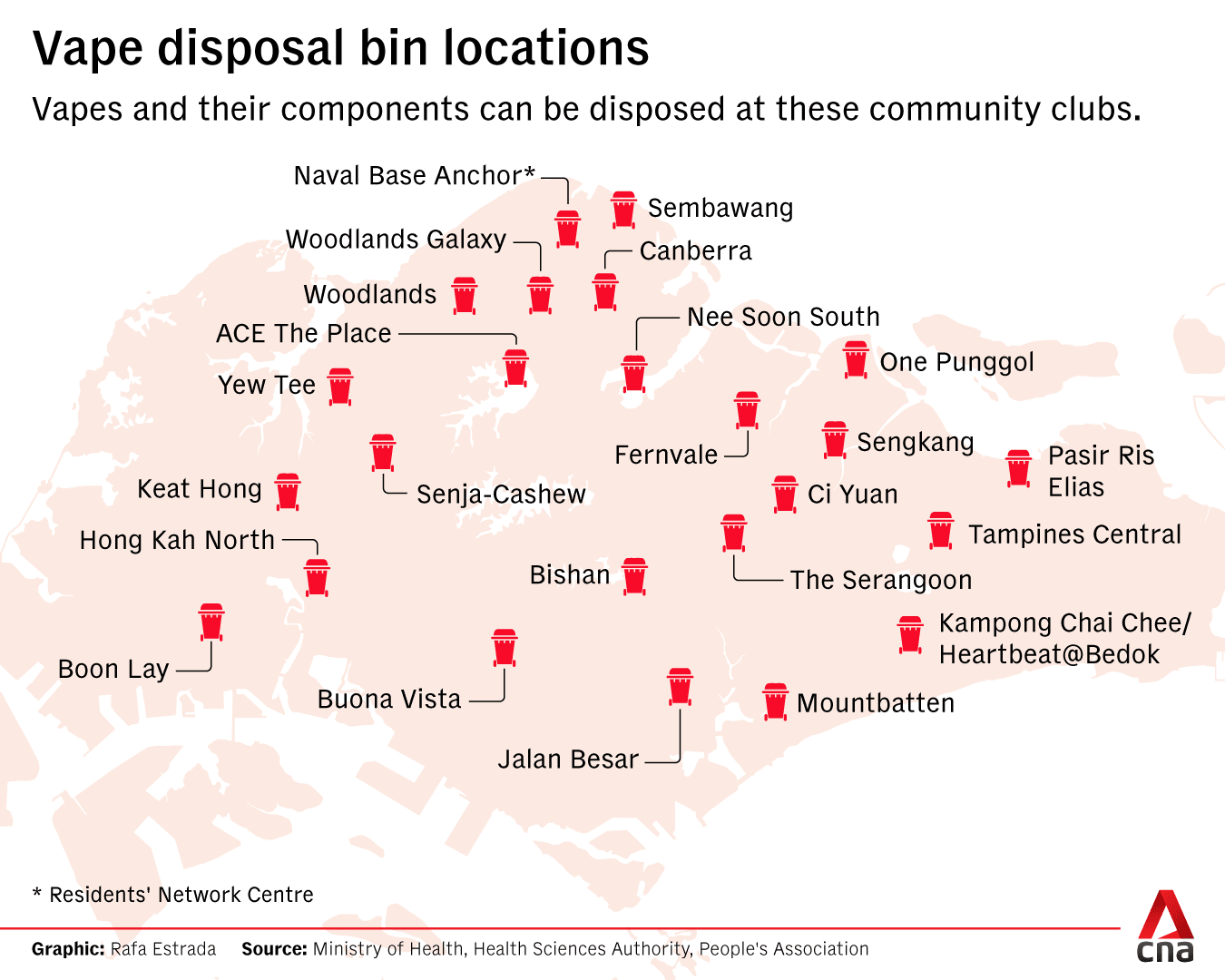'Vape bins' to be placed across Singapore; no penalties for surrendering devices
The move comes ahead of a reclassification of etomidate - an anaesthetic agent increasingly misused via e-vaporisers - as an illegal drug.

E-vaporiser disposal bins. (Photo: Health Sciences Authority)

This audio is generated by an AI tool.
SINGAPORE: Vape users are encouraged to dispose of their e-vaporisers in bins that will be placed across 24 locations in Singapore from Friday (Jul 25), as part of efforts to get people to quit the habit.
Vaping is illegal in Singapore, and authorities have been trying to crack down on a rising number of cases.
"Persons who come forward to bin their e-vaporisers or voluntarily seek support for quitting will not face any penalties for doing so," said the Ministry of Health (MOH), the Health Sciences Authority and the People's Association (PA) in a joint media release.
Under the new initiative, called "Bin the Vape", e-vaporiser disposal bins are being placed at 23 community clubs and one Residents' Network Centre for the public to voluntarily dispose of their devices safely.
Bins will also progressively be placed at other locations, including institutes of higher learning.
Those who wish to seek support for quitting, especially if they have been using etomidate e-vaporisers, may approach WE CARE Community Services, Singapore Anti-Narcotics Association, the Institute of Mental Health for assistance, or call Quitline counsellors at 1800 438 2000.

In response to CNA's queries on Saturday, HSA said that it will not be tracing the identities of anyone who had binned the e-vaporisers.
It added that as e-vaporisers may contain illicit substances like etomidate, the use of designated bins will ensure that these items are properly contained and destroyed, preventing them from being retrieved and potentially misused.
To ensure that there are no tampering or pilferage of the disposed vapes, HSA has locked the bins and secured them to fixtures such as pillars. Once the vapes are dropped inside the bins, they will not be retrievable.
"Moreover, these bins will be emptied on a regular basis. These disposed vapes will also be transported to the incineration plants for proper destruction under close supervision," said an HSA spokesperson.
Cases of tampering or theft of the bins will be referred to the police.
The authority added that the bin locations are not a reflection of rates of e-vaporiser usage around Singapore.
The use of vapes, especially those that are laced with etomidate, is increasing.
Health Minister Ong Ye Kung recently announced that in the next few weeks, etomidate will be classified as a Class C drug under the Misuse of Drugs Act.
Once this kicks into force, those caught using etomidate-laced e-vaporisers will be subject to mandatory supervision and rehabilitation.
Repeat offenders may be prosecuted and jailed for at least a year.
Those caught selling, distributing or importing etomidate-laced e-vaporisers will be subject to more severe penalties, including jail time of up to 20 years and caning.
Etomidate is a short-acting agent administered intravenously to induce sedation for patients undergoing surgery. It can also be used in certain medical processes such as intubation.
However, when used outside a controlled medical environment, etomidate can be very dangerous.
Assistant Professor Sewa Duu Wen, a senior consultant specialising in respiratory and critical care medicine at Singapore General Hospital, told CNA that inhaling etomidate can reduce anxiety levels for a short period of time, but the feeling passes quickly.
"They will need to use it several times to achieve the same level of sensation," he added, pointing to its addictive property.
When its effects start to wear off, users may deal with withdrawals such as increased anxiety and agitation. They may also get hallucinations and fall into a dissociative state.
"This disassociated state can be quite disturbing and can sometimes lead to certain actions that the user didn't intend to do, and that's where the potential of them causing self-harm may occur," Asst Prof Sewa said.
















